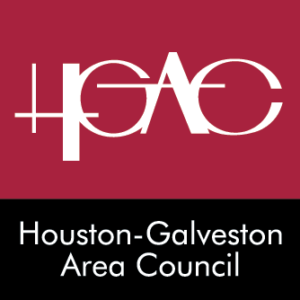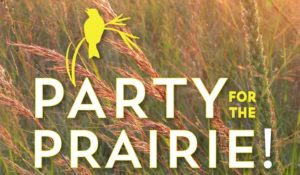Calendar
Interested in Urban Forestry? Come join Texas A&M AgriLife Extension, HAUFC and ISA-TX for a great day of education. Topics include: Emerald Ash Borer – Coming to a City Near You, Using Tree Growth Regulators to Reduce Pruning Costs, and Greening the Houston Region – Partnerships and Projects that Support the Urban Forest.
About this Event
The biomass in climax ecosystems such as forests, prairies and coastal wetlands cool our climate in three ways.
Leaves reflect more of the sunlight back into space than bare ground or concrete.
Plants sequester carbon. Most of that carbon goes underground as roots or sugars exuded to feed beneficial microbes. This massive soil life makes the soil spongy and better able to absorb water.
Plants create more rain. They transpire water and so recycle the rain. They put it back into the air and it rains again. As the plants pump it up into the air, the water vapor moves further inland. This supports inland forests which pump it yet further inland. 95% of planetary cooling is from hydrology and only 5% from carbon dioxide’s greenhouse effect.
Restoring land is low hanging fruit. Project Drawdown researched 22 ways folks are doing this. These include regenerative agriculture and multi-strata agroforestry. You can learn about these from Permaculture classes on www.urbanharvest.org
We could drawdown 30 gigatons of carbon per year according to Dr. Walter Jehne in Regenerate Earth. See also Www.GlobalCoolingEarth.org and Dr. Walter Jehne.
We need your help. Please eat organic. Please compost organic waste.
Join us at our Quarterly Membership Meeting!Â
Meet fellow conservation enthusiasts at an evening of food, drinks, and fun for everyone.
2019 Galveston Bay Report Card:Â How healthy is Galveston Bay?
Presentation by T’Noya Thompson, Galveston Bay Foundation Advocacy Programs Manager
T’Noya will examine and explain the grades and factors leading up to those grades for this year in Galveston Bay.
Date:Â Tuesday, December 3, 2019
Time: 5:30 – 8:00pm
Itinerary
5:30 – 6:30pm : One self-guided hour to explore the Lone Star Flight Museum with access to the two hangars, the Flight Academy and their Heritage Gallery.
6:00 – 6:45pm: Guests can explore the museum until 6:30pm, eat and drink during this time, or assemble a plate to take into the presentation
6:45 – 8pm: Introductions, presentation, Q&A
Location:Â Lone Star Flight Museum
Join the prairie community of southeast Texas and coastal Louisiana as we celebrate the great work happening locally to save, restore, and teach prairies. We will present awards to prairie champions and enjoy a delicious potluck dinner. Register today!
Duke University Press Description of Book:  “Based on fieldwork among state officials, NGOs, politicians, and activists in Costa Rica and Brazil, A Future History of Water traces the unspectacular work necessary to make water access a human right and a human right something different from a commodity. Andrea Ballestero shows how these ephemeral distinctions are made through four technolegal devices—formula, index, list and pact. She argues that what is at stake in these devices is not the making of a distinct future but what counts as the future in the first place. A Future History of Water is an ethnographically rich and conceptually charged journey into ant-filled water meters, fantastical water taxonomies, promises captured on slips of paper, and statistical maneuvers that dissolve the human of human rights. Ultimately, Ballestero demonstrates what happens when instead of trying to fix its meaning, we make water’s changing form the precondition of our analyses.”
Scientia Lecture Series featuring Caroline Masiello
Scientia Lecture Series on PANOPLY

Speakers:
- Laura Schaefer, Burton J. and Ann M. McMurtry Chair in Engineering, Professor, Department Chair
- Laurence Yeung, Assistant Professor, Earth, Environmental and Planetary Sciences
- Jim Elliott, Professor and Sociology Department Chair
Our environment is changing in myriad interconnected ways, with both short and long-term developments expected that will be felt differently in different communities and continents. We bring together three perspectives – from Engineering, Earth Sciences, and the Social Sciences – to illuminate not only the complex changes we are seeing today, but also the diversity of their impacts on society and of technological approaches being developed at Rice to address this most pressing challenge facing humanity.
A small reception will follow the event.
Dr. Karoline Mueller will speak.
“Restoring natural vegetation, such as forest, is currently the best option at scale for removing CO2 from the atmosphere, and must begin immediately to be effective within the required timescale of reaching net zero emissions by 2050. The livestock sector, having largely displaced natural carbon sinks, continues to occupy much of the land that must be restored.†(1)
“The scientific world is very aware of the intersection between food choices and their effects on both climate and human health. Michael Clark at the University of Oxford said: “Continuing to eat the way we do threatens societies, through chronic ill health and degradation of Earth’s climate, ecosystems and water resources.”
In this presentation, we will look at the way different food choices impact our planet negatively and why the same food choices also contribute to chronic illnesses that threaten societies through the high burden of personal suffering and staggering health care costs.
Although different groups give vastly different estimates of the effect of food choices on climate crisis, the very conservative number in the FAO report, Tackling Climate Change Through Livestock(2), comes to 14.5% of total greenhouse gas emissions. This roughly equals the number for all transportation contributions. Other estimates include future land usage changes that will provide additional carbon sinks and increase the positive effect drastically.
The 2015-2020 USDA Dietary Guidelines stated: “About half of all American adults—117 million individuals—have one or more preventable chronic diseases, many of which are related to poor quality eating patterns and physical inactivity.†While official publications(3) use the ‘reduce saturated fat’ as code for reducing animal products, many medical doctors and scientists send a clear message that choosing health-promoting vegetables, fruit, legumes, and whole grains, while omitting animal products, leads to good health outcomes.(4, 5)
Our choices can open the door to a win-win outcome.
For more information contact, Nan Hildreth at 713-504-9901 or NanHildreth@riseup.net
 H-GAC’s Parks and Natural Areas Summit and Awards Ceremony will be held from 9 a.m. to noon on Friday, February 14, 2020, at H-GAC Conference Room B, Second Floor. The Summit will include presentations on trends and topics related to parks and natural areas.
H-GAC’s Parks and Natural Areas Summit and Awards Ceremony will be held from 9 a.m. to noon on Friday, February 14, 2020, at H-GAC Conference Room B, Second Floor. The Summit will include presentations on trends and topics related to parks and natural areas.
The event will also include the annual Parks and Natural Areas Awards recognition ceremony. These projects serve as models for planning and project implementation for parks and natural areas in the region. Projects will be honored in three categories: Planning Process, On-the-Ground Projects Over $500,000, and On-the-Ground Projects Under $500,000.
A light breakfast will be served. Registration and breakfast begin at 9:00 a.m., followed by topic speakers at 9:30 a.m. The awards program will begin at 10:30 a.m. and will be followed by networking until noon.
Agenda
9:00 a.m. Â Â Registration and Breakfast
9:30 a.m.   Presentation – Claire Hempel, Design Worskshop, Equity In Parks
10:00 a.m. Presentation – Katie Coyne, Asakura Robinson, TBA
10:30 a.m. Parks and Natrual Areas Annual Awards Ceremony
11:30 a.m. Networking
The Parks and Natural Areas roundtable serves as a forum for discussion of issues related to parks and natural areas and promotes the Parks and Natural Areas awards program. The roundtable facilitates information exchange and planning efforts between various stakeholders and collaborators to protect and preserve parks and natural areas across the region.
Nature lovers of all ages are invited to discover local environmental organizations, outdoor activities, native plants, and wildlife. This family-friendly event includes pontoon boat tours, guided walks, live animals, and a catch-and-release fishing tank.
Raise funds for the Lawther-Deer Park Prairie Education Program, honor Susan and Peter Conaty, participate in auctions, and test your prairie knowledge with this fun program.